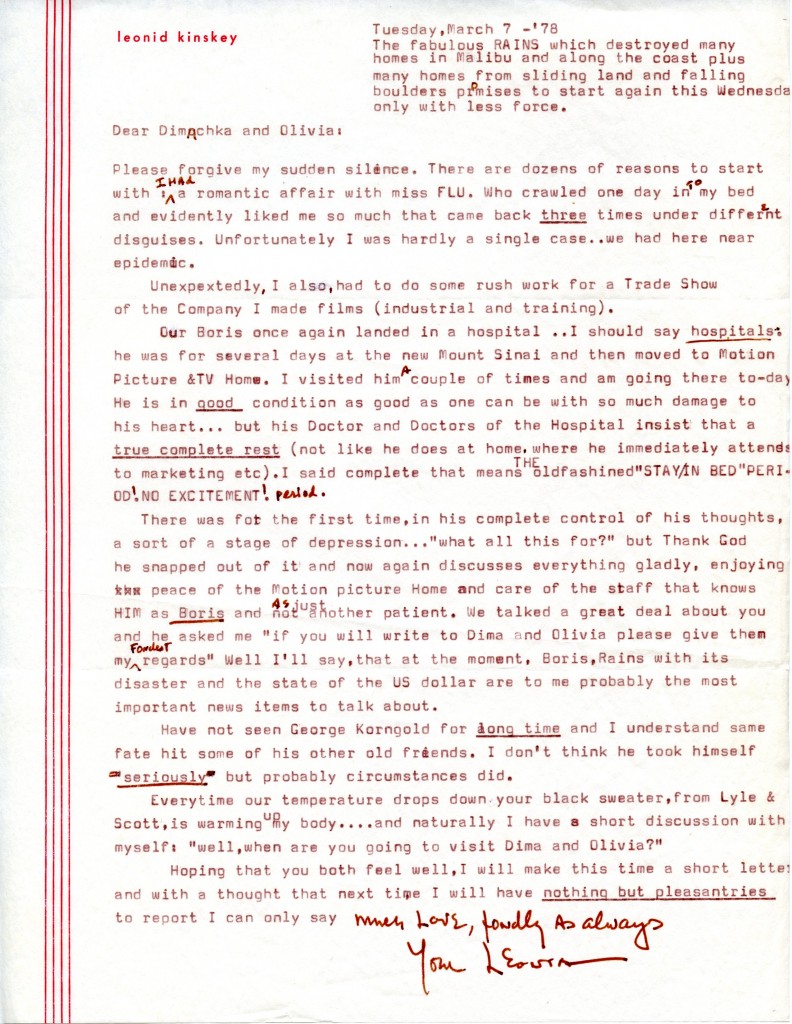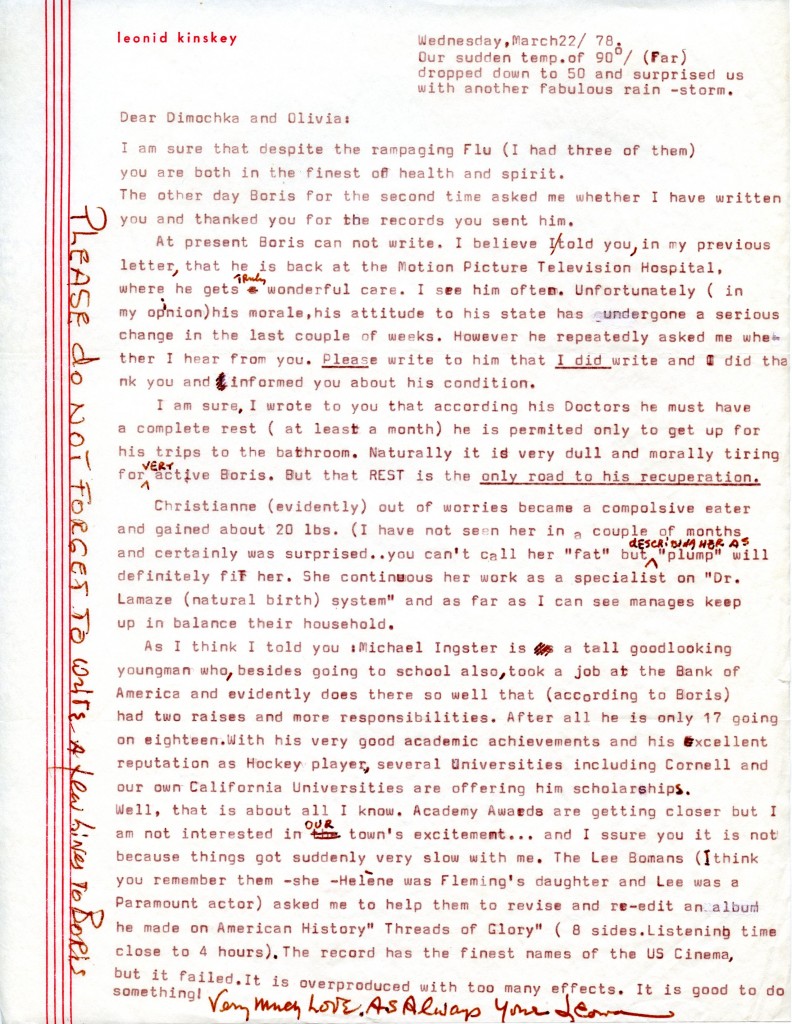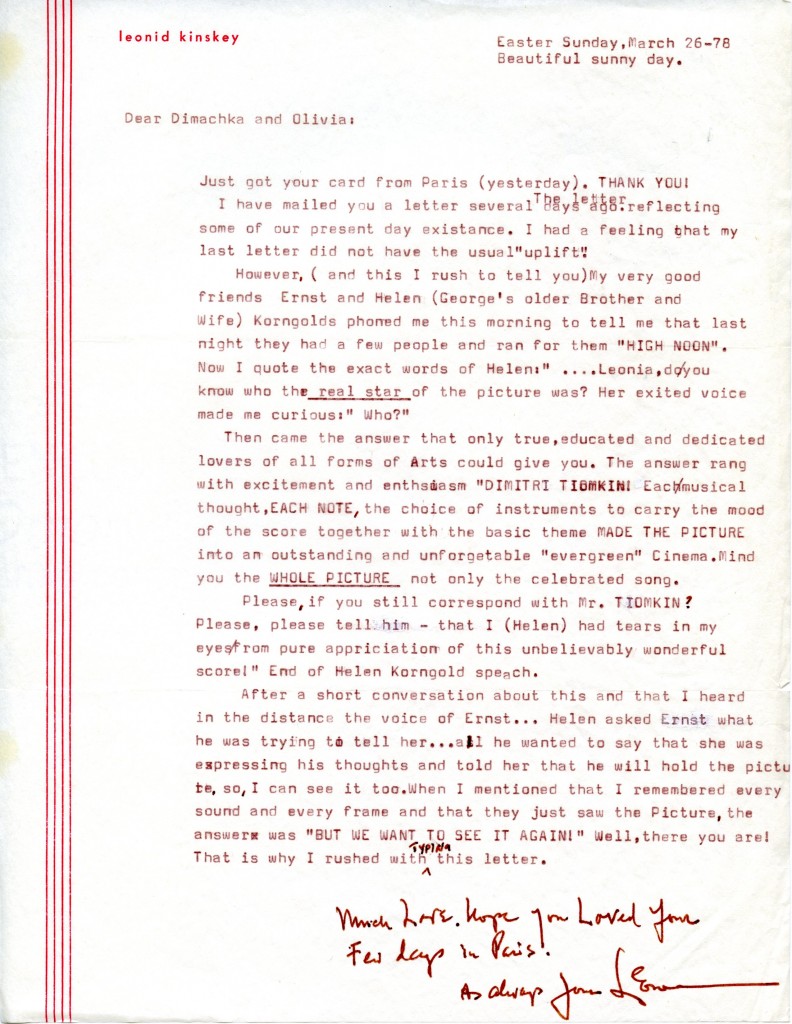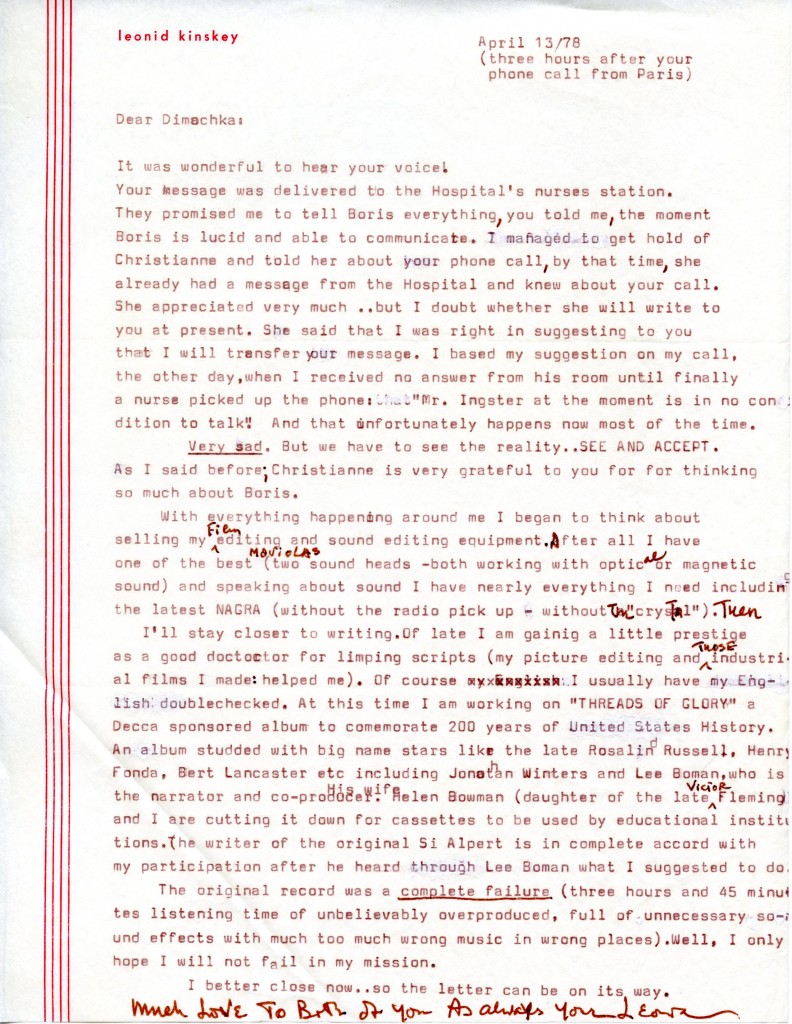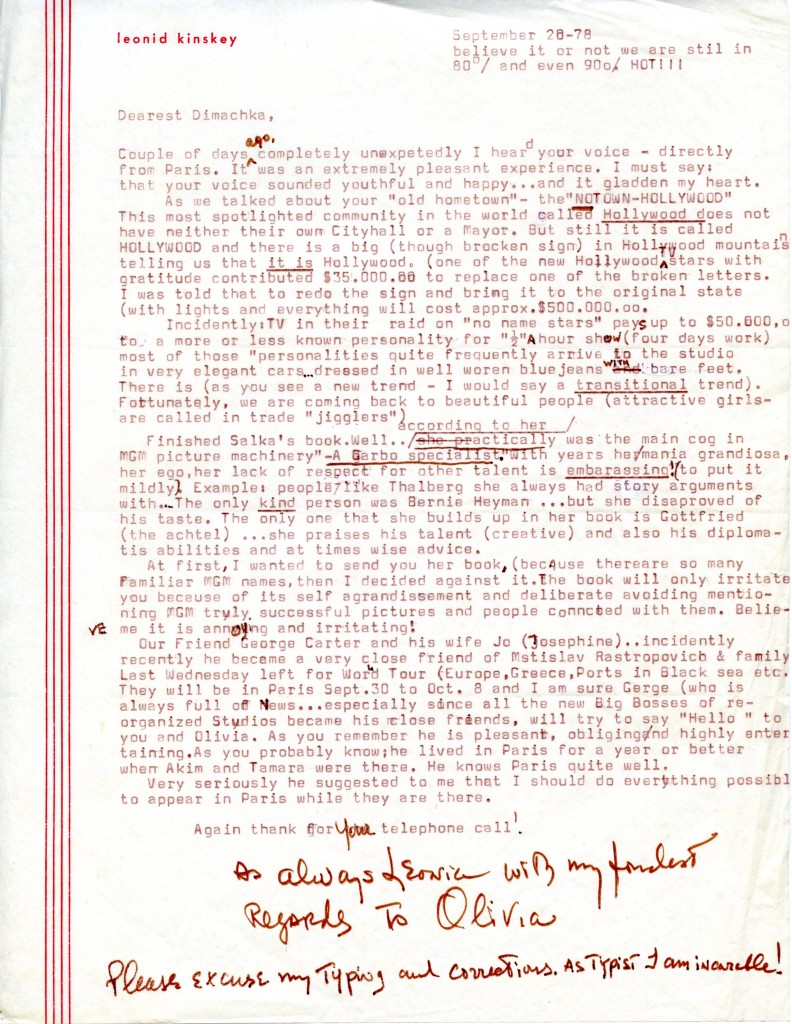Leonid Kinskey, best known for portraying the character Sascha the bartender in the film Casablanca, sent a handful of letters to Dimitri (“Dimochka”) and Olivia Tiomkin in the Spring and Fall of 1978. [Scroll to the bottom of this post to see the letters in their entirety.] The letters offer a glimpse into the world of the semi-retired actor and are filled with stories about mutual friends in Hollywood (the Tiomkins were in Paris at the time).
Writer-director Boris Ingster had landed in the hospital with heart problems and was soon moved to the Motion Picture Country Home in Woodland Hills. Leonid writes of Boris, his struggles to recuperate, his wife Christianne, and their son Michael. The Tiomkins sent disc recordings for Boris to enjoy and Leonid acted as a go-between with news and encouragement.
Leonid worked odd jobs here and there, such as a trade show for a maker of industrial films and as editor and revisor for an intended reissue on cassette of the Threads of Glory. The 1975 recording was issued on eight LPs, covered 200 years of American history in words and music, and featured Lee Bowman (as narrator), Henry Fonda, Burt Lancaster, Rosalind Russell, and others. Leonid believed the original recording was “overproduced with too many effects.” Together with Helene Rosson Bowman, Lee Bowman’s wife and the stepdaugher of director Victor Fleming, Leonid was to cut down the recording for use by educational institutions. Without mentioning any specific projects, Leonid also lets on that he has gained a little prestige as a script doctor.
The Korngolds—Ernst, his wife Helen, and his brother George—make appearances. After the Korngold’s screened High Noon at their home for friends, Helen raved about the film’s music, calling it the “real star” of the picture, including “each musical thought, each note, the choice of instruments to carry the mood.”
In 1978, the Hollywood sign was in serious need of repair and Leonid touches on restoration efforts that began that year and would bring the iconic sign back to life. He goes on to scoff at television’s raid on “no name stars,” many of those “personalities quite frequently arrive to the studio in very elegant cars…dressed in well [worn] blue jeans with bare feet.”
There is a brief diatribe on Salka Viertel’s book, The Kindness of Strangers. Even though filled with familiar MGM names—Kinskey appeared in two 1930s MGM films scored by Tiomkin, I Live My Life and The Great Waltz—Leonid finds Viertel’s words “annoying and irritating” for the reasons he mentions.
And his friends George and Josephine Carter have become close friends with cellist Mstislav Rostropovich who set off on a world concert tour that would include Paris.
Boris Ingster died in Woodland Hills in August 1978. Leonid lived another 20 years.
Born in Russia, Kinskey’s route to the U.S. mirrored Tiomkin’s path. Kinskey left Russia for Germany in 1921, made his way to the United States in 1924, and became established in film in the early 1930s.
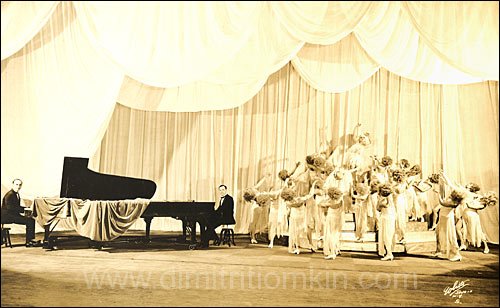
Dimitri Tiomkin (left) at the piano for “Rhapsody in Blue” ballet, 1926
Leonid told Olivia Tiomkin that he was at a concert that Dimitri gave in New York in the 1920s playing Rhapsody in Blue and Dimitri entered the stage with a blue spotlight on him. Kinskey is probably referring to a May 1926 performance of the Rhapsody in Blue ballet.


